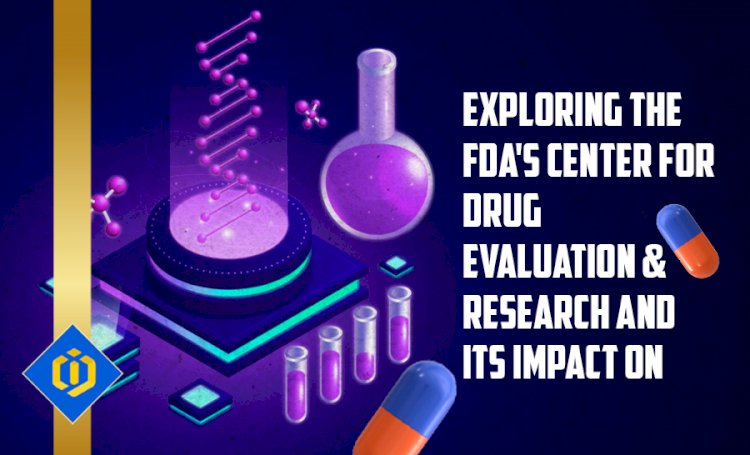Exploring the FDA's Center for Drug Evaluation & Research and its Impact on Drug Safety & Efficacy in the U.S.

Introduction:
The United States Food and Drug Administration (FDA) is the primary federal agency responsible for safeguarding public health by ensuring the safety and efficacy of drugs, biological products, and medical devices. Within the FDA, the Center for Drug Evaluation and Research (CDER) plays a crucial role in overseeing the approval process for new drugs. This article delves into the CDER's functions in ensuring drug safety and effectiveness in the United States.
The CDER's Role in New Drug Approval:
The CDER is tasked with the meticulous evaluation of the entire lifecycle of a new drug, from its initial development to its availability on pharmacy shelves. This process commences with the submission of an Investigational New Drug application (IND) by pharmaceutical companies, which includes preclinical data to support the progression to human trials.
Subsequently, a series of clinical trials are conducted, and the results are compiled into a comprehensive New Drug Application (NDA). The NDA contains detailed information about the drug, including its chemical composition, mechanism of action, manufacturing processes, pharmacokinetics, pharmacodynamics, and data from preclinical and clinical trials.
The Rigorous Review Process:
The CDER employs a rigorous and multidisciplinary review process, involving a team of experts from various fields. These professionals meticulously scrutinize every aspect of the NDA to ensure the following:
Appropriate Labeling: The proposed labeling of the drug must contain all the necessary information for its safe and effective use.
Good Manufacturing Practices (GMP): The drug must be manufactured in compliance with GMP regulations, ensuring its identity, strength, quality, and purity.
Efficacy: The clinical trial data provided must be robust and demonstrate the drug's effectiveness for its intended use.
Risk-Benefit Assessment: The benefits of the drug must outweigh the potential risks, taking into consideration the targeted patient population and the condition it aims to treat.
The reviewers go beyond relying solely on summaries provided by pharmaceutical companies and meticulously examine the raw data from clinical trials. They ensure the ethical conduct of the studies and verify that the data support the conclusions drawn.
Balancing Benefits and Risks:
A critical aspect of the drug approval process is the evaluation of the risk-benefit balance. The CDER does not demand a drug to be entirely risk-free; instead, it requires a favorable risk-benefit ratio. This means that the expected therapeutic benefits should outweigh any potential risks associated with the drug's use.
Ongoing Monitoring and Post-Marketing Surveillance:
The CDER's responsibilities extend beyond the approval stage. It actively engages in continuous post-marketing surveillance to monitor the real-world performance of drugs. The center oversees the implementation of Risk Evaluation and Mitigation Strategies (REMS) when necessary to manage known or potential risks associated with a drug. Additionally, it closely monitors adverse event reports and has the authority to require further post-marketing studies to address emerging safety concerns.
Conclusion:
The FDA's CDER plays a pivotal role in ensuring the safety and effectiveness of new drugs entering the U.S. market. Through meticulous evaluation and rigorous regulatory oversight, it upholds the standards necessary to protect the health of the American public and maintain the integrity of the pharmaceutical industry.
In an era of rapid medical advancements, the CDER serves as a vital link between pharmaceutical innovation and patient safety. Its commitment to thorough regulatory scrutiny instills confidence in the American public regarding the safety and efficacy of therapeutic innovations. The work of the CDER extends beyond mere regulation; it represents a profound responsibility carried out with scientific rigor and a dedication to public health.
Author: Pooyan Ghamari, Swiss Economist & Visionary

 content-team
content-team 






















